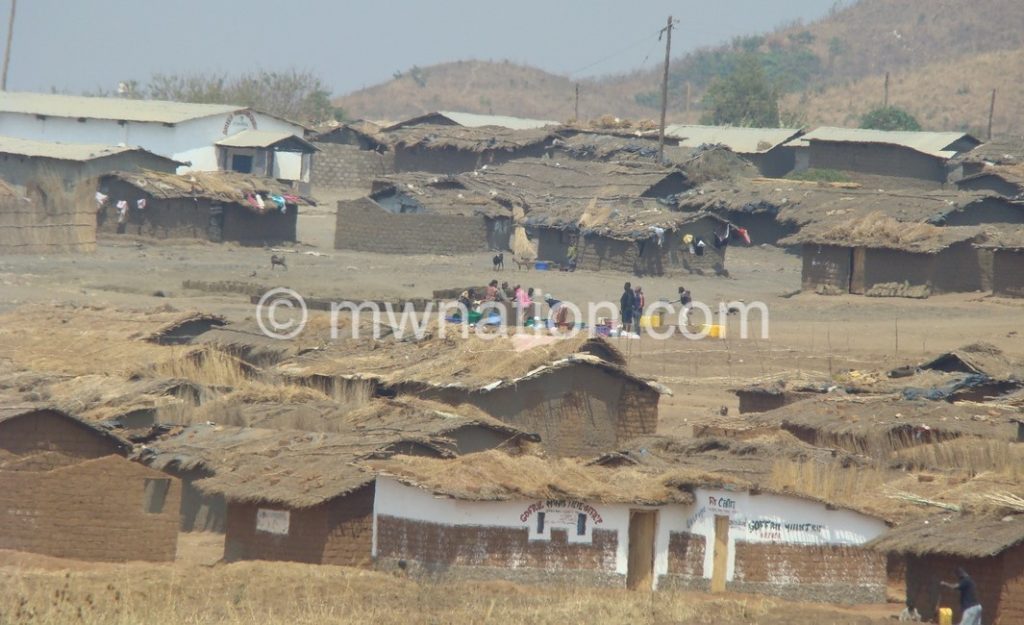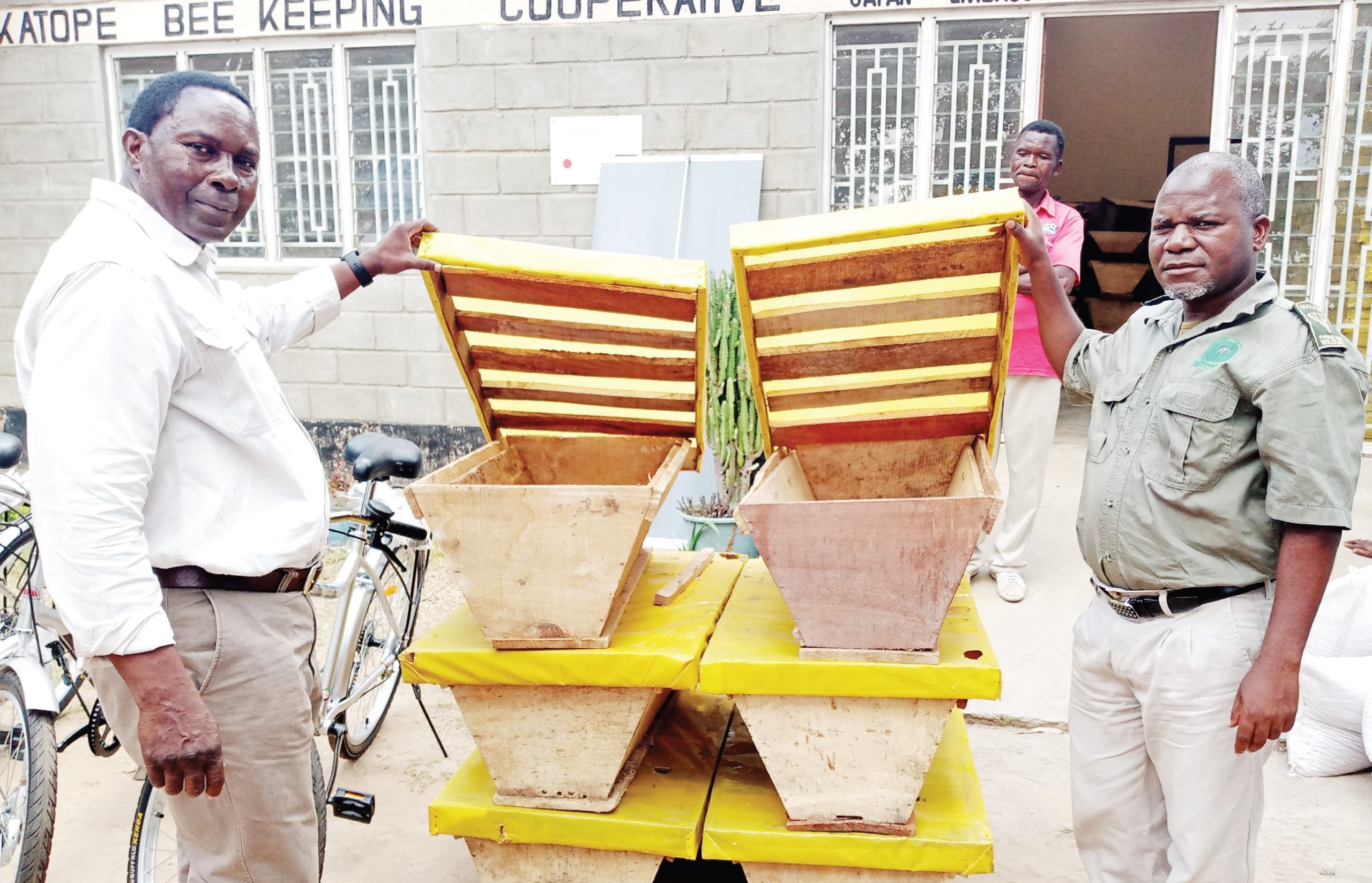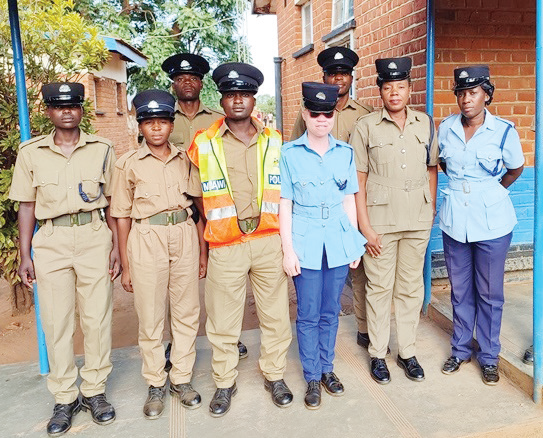Human traffickers exploit Dzaleka refugee camp
Human traffickers have invaded Dzaleka Refugee Camp in Dowa. The syndicate, involved in the racket that sees economic migrants from the Horn of Africa transported for a better life in South Africa, has found fertile ground at Dzaleka. In this second and last part of investigation, KANDANI NGWIRA continues to explore the circle:
Ahmed Hassan Abudi, chairperson of the group now running the Mosque, says allegations that it was being used for human smuggling were not true, and were part of a political vendetta by rivals who wanted to control the Mosque, but had lost out to him in executive committee elections.

“Those who lost started this propaganda to tarnish my image,” he says. “But I won the election and the election was very transparent.” He adds that a district committee of Muslim Association of Malawi assisted with the voting process.
However, it has now emerged that Abudi may be the person of interest in the human trafficking investigation at the camp. Dowa Police through the deputy commissioner confirmed saying there were hoping he could help them shade more light on the matter but he has reportedly disappeared from the camp since the day of the raid. Police are now requesting help from well-wishers who can help locate those that have escaped.
Nasoro, however, disputes that the matter started because of the election result, saying problems caused by people smuggling surfaced way before the vote. When I spoke to Nasoro after the Police raid, he was excited saying it was a vindication of what he had been saying that the camp was being exploited by human traffickers.
Long borderline, but limited resources
Immigration Department spokesperson Joseph Chauwa listed several factors that made it difficult to fight people smuggling, including limited resources for border patrol and law enforcement, as well as corruption among some officials.
“There is a syndicate that involves locals, foreign nationals and regrettably some rogue law enforcers such as police and immigration officers,” Chauwa says.
In addition, the Immigration Department and police do not have the necessary boats and expertise to patrol Malawi’s borders tightly enough.
“Unfortunately, Malawi has a long borderline in the north and the illegal immigrants use three districts – Chitipa, Karonga and others come through Nkhata Bay, by boat crossing over Lake Malawi,” Chauwa says.
He explains that the Immigration Department and police regularly mount roadblocks along routes commonly used by people smugglers— who in turn often use uncharted roads to get past law enforcement. Chauwa says officials sometimes have to rely on tip-offs from disgruntled gang members or rival syndicates.
“Even when suspects are apprehended, it is difficult to tell who is genuinely seeking asylum, and who is just passing through on their way south.
“But to deny migrants asylum would be a violation of international commitments on refugees,” he says, pointing out that Malawi offers sanctuary to those fleeing insecurity and oppression under the 1951 Refugee Convention and 1967 Protocol.
The IOM report estimates that 17 000-20 000 Ethiopians and Somalis leave their homes and pass through Malawi bound for South Africa every year. And while officials do intercept some, the latest figures from the Department of Immigration in Malawi indicate that this is just a fraction of the overall figure. IOM declined to give updated figures, saying the information was not for public consumption.
Ethiopians top the number of illegal immigrants intercepted entering Malawi through the Tanzania-Malawi border at Songwe.
The official in charge of illegal immigrants in the Immigration Department, Ellard Naming’ona, said that in 2017 Malawi intercepted 689 Ethiopians. For comparison, he listed Burundians (5), Congolese (1), Rwandese(7), Tanzanians (7) , Kenyans (1), Pakistanis (3), Nigerians (1), Indians (2) and French (1).
The latest statistics obtained from the Northern region show that 81 Ethiopians were intercepted as they were illegally entering Malawi during the first six months of 2018. He said the figure is lower than a year ago, either because the smugglers have been more successful in evading capture, or because would-be migrants have been deterred by the success of officials in interceptions.
Whatever the reason, Northern Region Police spokesperson, Superintendent Peter Kalaya, says he believes penalties are also not stiff enough to stop the people smugglers, who operate a lucrative business.
“When they (illegal migrants) are intercepted we charge them with the case of illegal entry. They are taken to court where mostly the court orders repatriation. So as police we surrender them to the Immigration Department to conduct the repatriation process,” Kalaya says in an interview.
“But for Malawians who help these Ethiopians to beat security check-points, they are charged with the crime of aiding and abetting entry of illegal immigrants, which is contrary to section 36 of the Immigration Act. Unfortunately, it is treated as a misdemeanour, whereby the culprits are either fined (or…) given a custodial jail sentence of one year,” he says.
A visit to Songwe border crossing found many young men in Karonga district who make a living from helping illegal immigrants crossing into Malawi from Tanzania.
“I charge between $300 and $500 per person when they want to be escorted from Karonga to the nearest (city), Mzuzu,” said one young man in the district, who declined to be identified for fear of being arrested for involvement in people smuggling. “But if they want to be escorted up to Dzaleka, the cost is doubled, because you have to bribe many officers along the way.”
Enforcing immigration laws
Another factor that makes Malawi a fertile ground for illegal immigrants is the relative ease with which the people smugglers are able to obtain official travel documents, such as passports, said Nasoro, the Burundian in Dzaleka Camp.
In December 2016 it was reported in Parliament that 250 blank passports went missing without trace from immigration offices. One of the documents was later recovered from a Nigerian national who was arrested in South Africa. In December 2017, Malawi Fiscal Police arrested four foreign nationals in connection with the missing passports and the matter is now in court.
But the Immigration Department dismissed allegations that it is easy to obtain Malawian passports, saying there is a strict vetting process for applicants before they are issued.
The immigration spokesperson, said the department had ordered a clampdown on corrupt officers suspected of involvement in helping illegal immigrants to get around these hurdles.
“Several officers of the law are now in custody, or answering charges in court for misconduct,” he says. “So we are not sitting idle.”
—“This story was produced by The Nation. It was written as part of Reporting Transnational Organised Crime, a media skills development programme run by the Thomson Reuters Foundation in partnership with the EU funded ENACT programme. More information at http://enactafrica.org/. The programme funders are not responsible for the article’s content. The content remains the editor’s sole responsibility.”





